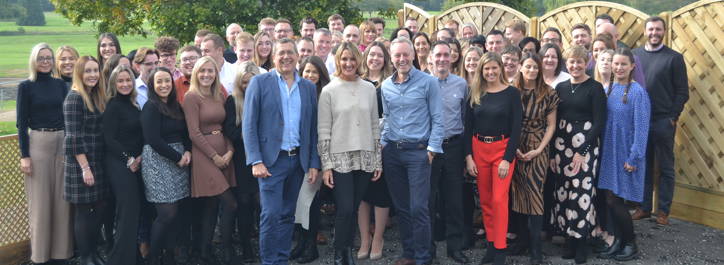Director Clubs focus on recruiting and retaining the right ‘people power’ to drive business growth
According to Grant Thornton’s ‘People Power’ research, talent and skills is the top accelerator of business growth for organisations who achieved a 20% or more turnover increase over the last year – but also a top barrier to progress.
The potential barriers are due to four key challenges, identified in the report as; finding people with the right mindset to drive growth; competing for in-demand talent; retaining talented people; and equipping people to be more than just machines.
The research revealed one in two high growth businesses were finding it hard to recruit people with the right skills, 88% were expecting to see an increase in competition for talent in the next year and more than a third confirmed that retaining talent is a challenge.
Recruitment specialists Pure and its executive search division Pure Executive, joined forces with experts from Grant Thornton to reflect on the findings and discuss the current talent landscape in the East of England with other local business leaders at a series of events held across the region.
Jodie Woodrow, Senior Manager at Pure Executive, said: “The positive news is that we have seen an increase in the number of jobs advertised and extremely low levels of unemployment. However, the current climate is causing uncertainty and many people are not sure if now is the right time to make a career move. With less people applying for jobs, businesses are facing a talent shortage and finding the right talented and skilled people to fuel business growth is a real challenge.
“During the discussions we heard from many small business owners who said one of their biggest problems was not having the time or resources to focus on finding the right people. They also felt they were competing against growing businesses which had a stronger proposition to ‘sell’ to prospective employees, for example more chances of promotion.
“What was fantastic to hear was that there was a real shared desire to prevent a ‘talent drain’ from our region. Local employers don’t want to see the pull of higher paid jobs in London as a threat, they want to see it as an opportunity to highlight what our region has to offer such as great location, shorter commute times and lower property prices.
“We were able to reinforce this by advising that salary was no longer the sole driving force behind a candidate’s decision. Findings from our initiatives including ‘Compare My Salary’ and ‘Best Employers Eastern Region’ show that factors such as working environment and learning and development opportunities are becoming just as important.
“Instead of trying to compete on salary, our discussions focussed on the fact that speed and quality are actually the two biggest factors organisations of all sizes can look at improving in a candidate-short market. Organisations which streamline their recruitment process to be as quick and agile as possible are less likely to miss out on the most talented people. If it takes too long, the best candidates may have already accepted a job offer from a competitor which has acted quicker.
“The overall quality of the candidate experience has also become crucial. If businesses get just one step wrong throughout the recruitment journey, it could be the deciding factor for a potential employee choosing between organisations.
“Employers who really invest in candidates and sell the reasons to join their business are more likely to keep the best people engaged throughout the process. In fact, the quality of the recruitment experience begins before you even advertise a position. It is down to developing a great employer brand. A strong brand can put businesses in the powerful position of candidates wanting to work for them and submitting prospective applications – even when a position isn’t available. It also helps to attract the right people in the first place by promoting the culture and values of the organisation.
“Discussions also centred on how a good employer brand needs to show the ‘human’ side of a business. One of the most compelling things Grant Thornton revealed about its own approach was the power of sharing real life examples of employee experiences on social media. Highlighting stories of those who are able to effectively balance work and home life due to Grant Thornton’s agile and flexible culture has generated lots of likes, positive comments and enquiries about joining the organisation. Businesses know they have to think outside the box to compete for talent and agile working is one example of an attractive selling point which makes a difference to people’s working lives.
“Here at Pure, we also need to attract and retain our own high-calibre employees, as well as supporting other organisations with their recruitment needs. We shared our own example of using video to convey our employer brand. Our ‘work for us’ video gives a clear snap shot of what it is like to work for Pure, our culture, values and environment and we have seen an increase in speculative applications as a result.
“Overall, the consensus was that nothing has changed in terms of businesses wanting to find and keep talented people. What has changed is how best to go about this in the current recruitment market. We shared our expertise, regional knowledge and examples of best practice to support business leaders in thinking about any positive changes they could make to overcome the barriers and gain the people power needed to accelerate business growth.”
These issues and more were discussed at the Autumn series of Directors Clubs, delivered by Pure Executive and Grant Thornton who both see talent and skills and crucial to the continued growth of the region. The quarterly Director Clubs, held in Cambridge, Chelmsford, Ipswich and Norwich, bring senior professionals together to share experiences and gain insights from industry experts.
For more information about future events email Lucy Plumb on lucy.plumb@pureexecutive.com



